It was 1:30 p.m., and Andrew Murray, the general manager of the 22-room Doonmore Hotel, had not yet eaten breakfast.
“It’s been one thing after another since I woke up,” he said. “You know, in this job there are an awful lot of moving parts.”
The hotel perches on a cliff on this small island of about 170 permanent residents. It has a restaurant, a bar, and during a week in late May, hikers and birders filled every room.
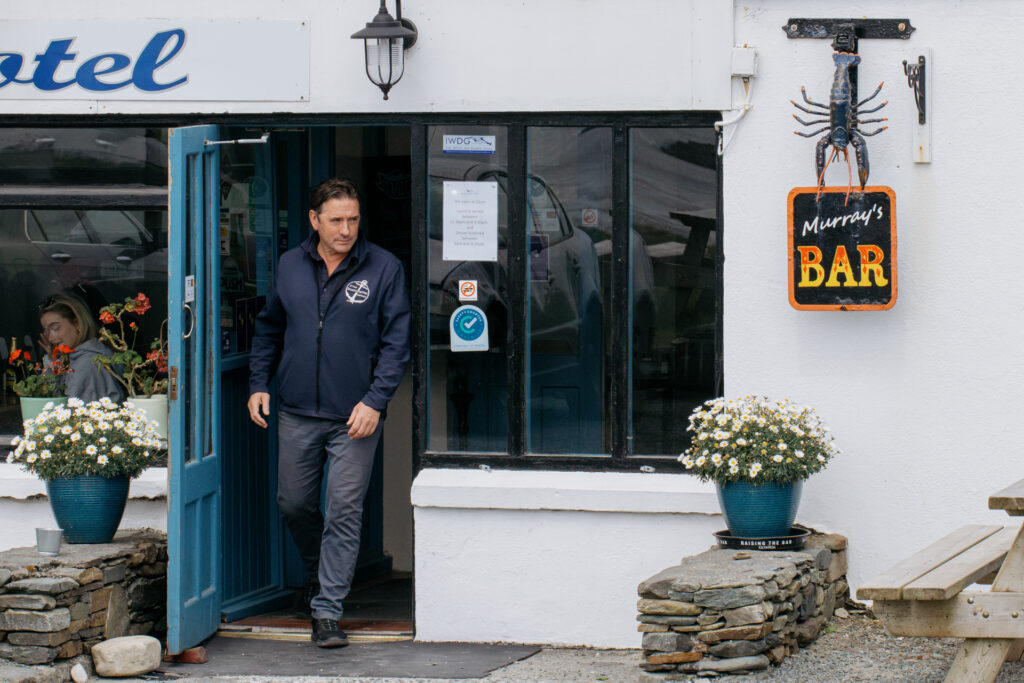
Murray is a native of Inishbofin, and his family has lived there for several generations. His parents founded the hotel in 1969. But Murray isn’t averse to using cutting-edge tools to innovate.
During an introductory course to AI, he learned about the fundamentals of AI and the capabilities of commercially available AI tools, including Microsoft Copilot.
“What I’m interested in the most is the power of AI to save time for people like me,” he said. “Because time is the most precious thing we have, and it’s finite. There are only 24 hours in a day.”
He said he plans on applying his newfound knowledge of various AI tools including Copilot, an everyday AI companion available for work or personal use, to put AI to work helping him with a variety of administrative tasks, including scheduling and using data analysis to manage purchasing, budgeting and pricing.
“It might take me a week to do the same thing that it will do in five minutes,” he said.
The AI Skill-Up-A-Thon was presented by Microsoft in partnership with Galway County Council and FIT, or Fastrack into Technology. The training is designed to equip participants with basic knowledge and skills in AI. The Skill-Up-A-Thons are part of an initiative to bring AI training to rural Ireland.
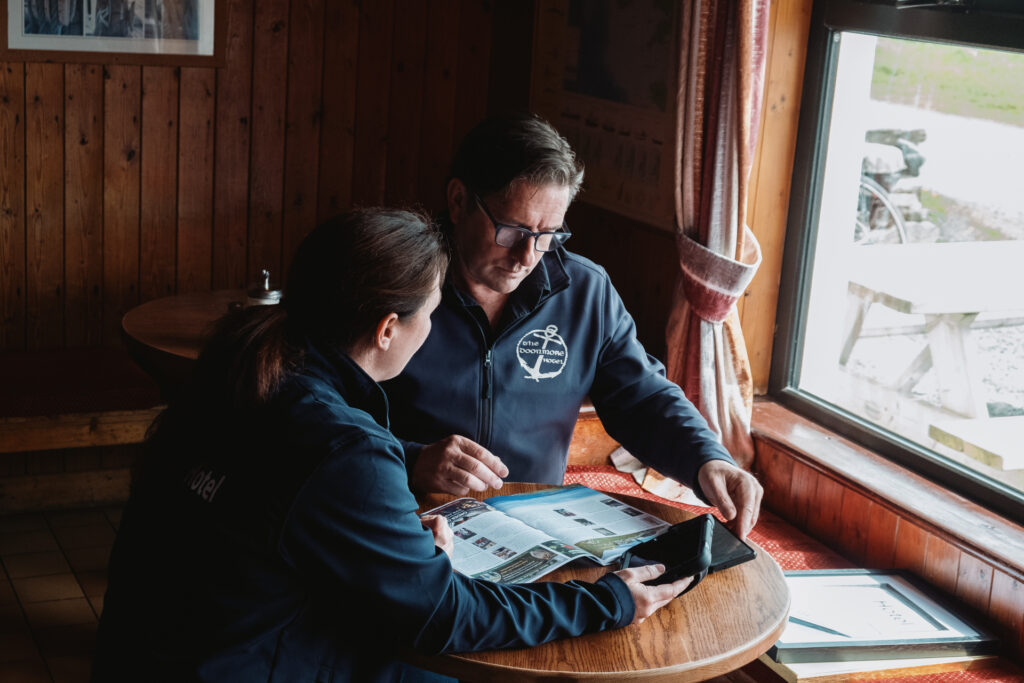
Leaving no one behind in Ireland
Murray and several other residents of Inishbofin are among thousands of Irish people who have benefited from a variety of educational programs developed by Microsoft as part of its broader “Skill Up Ireland” initiative. The company’s ambition is to provide every person in Ireland the opportunity to learn AI skills. Many of the programs are being delivered in coordination with the Irish government and various organizations. Its Dream Space program, for example, aims to reach most of Ireland’s 1 million students and their teachers with immersive learning about science, technology, engineering, math and AI skills.
As advances in AI accelerate, Microsoft has made new upskilling and reskilling programs a priority, with the goal of making sure Ireland’s workforce is empowered with the tools to succeed.
“With the acceleration of generative AI in the last 18 months, there’s a real need to teach people what this is, to demystify it,” said Kevin Marshall, the Head of Learning & Skills for Microsoft Ireland.
Marshall was visiting students and teachers on Inishbofin as well as participating in a follow-up to the initial AI training for islanders. “It’s a new technology changing faster than we’ve ever seen before.”
The challenge of teaching people about AI is that it is a rapidly developing technology whose uses are still being discovered and developed. “The teaching is non-invasive, it’s collaborative,” Marshall said. “The programs teach the basic foundations and core principles of AI. Here’s what it can do. Here are the risks and the ethical issues. Here are the opportunities. And here’s where you go play with it.”
“We don’t know how to run a hotel like Andrew Murray does,” Marshall said. “We have to be honest here that we don’t have all the answers. It’s more about presenting a fantastic set of tools and asking ‘What do you think? Where do you think this will fit in your business?’”
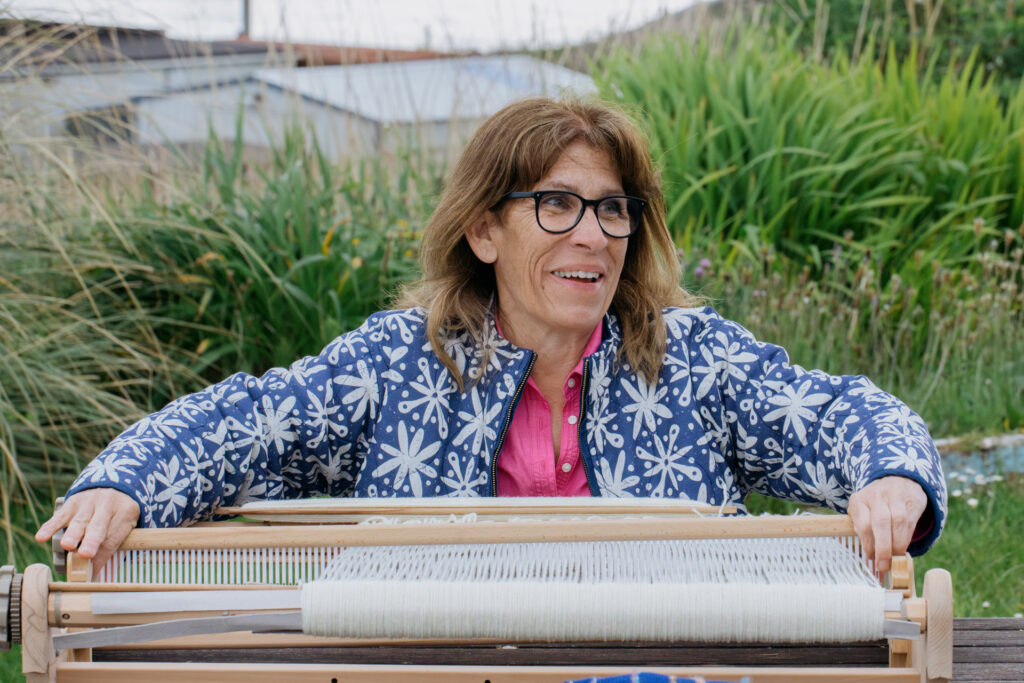
That message resonated with Catherine O’Connor, who has lived on Inishbofin for 27 years – her grandparents on her mother’s side, and her mother, were born on the island. She is a weaver who draws her inspiration from the colors found in nature around her and takes pride in reviving a craft that was part of island life more than a century ago.
“My nana used to knit, and she worked in the lace-making school that used to be here, and my grandfather was a sailmaker, a tailor and a shoemaker,” she said. “My mother used to make us dresses, so wearing something homemade was something I wanted to do.”
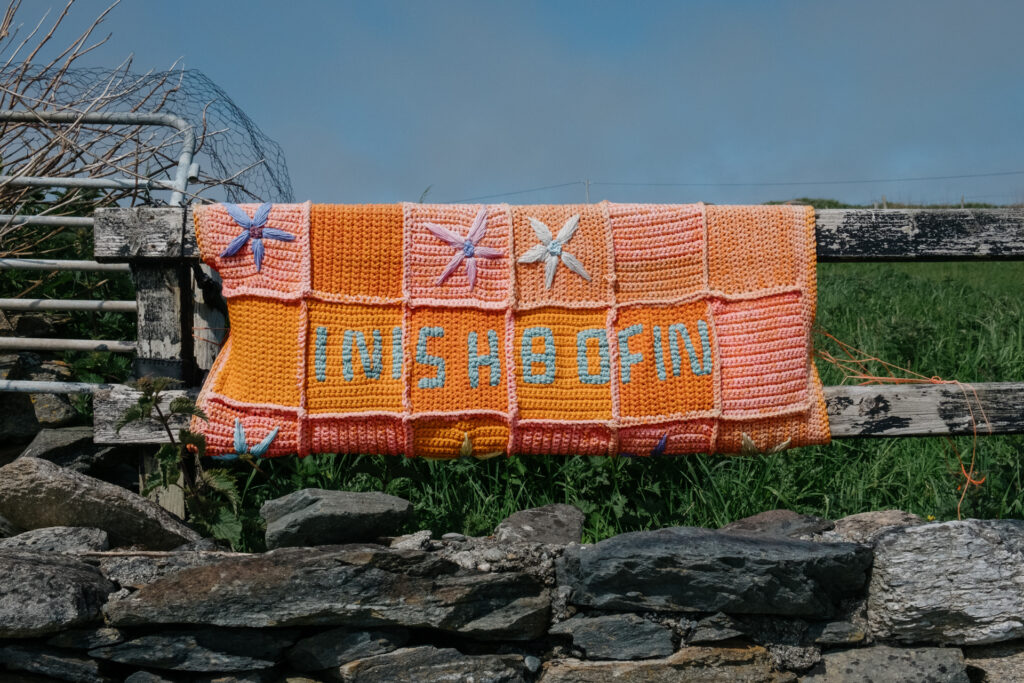
Copilot meets craft
She bought some traditional heddle looms in 2019 and gradually her craft has evolved into an art. She uses a variety of Irish and other wools, including the unique white wool of Galway County (Inishbofin’s county), to make scarves, table and bed runners and wall hangings.
She said she was wary about the AI training at first, but when she spoke about it with two of her friends, a wool felt artist named Audrey Murray and a florist named Patricia Concannon, they decided it was worth a try.
“I was worried it was going to be too technical, but we were just absorbed by it,” she said.
She markets her work through an Instagram account and a website, and she sometimes found it difficult to find the right language to describe her work.
“Every piece has a story behind it,” she said. “You can get a scarf at the five-and-dime store, but a handmade scarf takes hours and hours to make. It’s a totally different level. So you have to find the right words to use.”
She said that in the AI training she learned how to put in a detailed description of a certain work and the idea behind it to create a prompt for Copilot. Copilot would then produce a couple of sentences that made a good starting point for a post or website description.
“Before I would be sitting there a long time or I would ask my sister to come up with some words – she was always telling me I needed to fluff it up a bit because I’m trying to sell something,” O’Connor said. “It’s only when I did the course when I saw how easy it was to do it.”
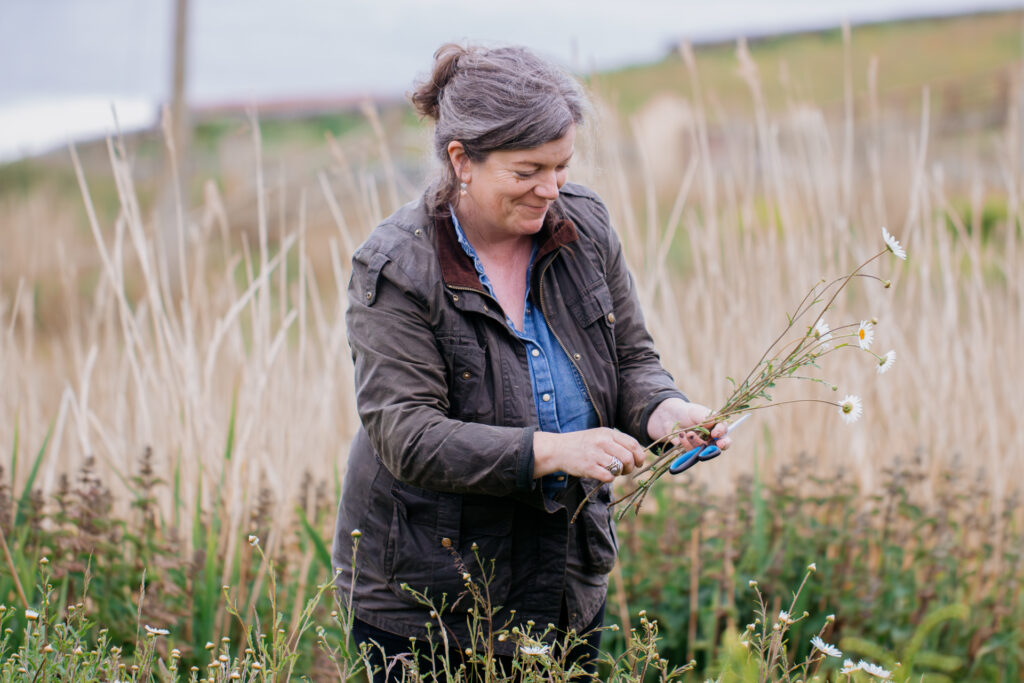
Bridging the ‘digital divide’ in Galway County
Her friend Patricia Concannon, the florist, said she also found the training accessible.
“I was really dreading it because I’ve such poor computer skills and I was afraid to be found out,” she said. “But they spoke to you in a language that you could really get, and I didn’t feel lost in any of it.”
Like O’Connor, she said she plans on using Copilot to help her improve the wording on her website and her Instagram posts. “It will help me with my descriptions and help with my advertising,” she said.
Uinsinn Finn, Director of Services for the Galway County Council, said that 80 percent of the people in Galway County live outside of towns and villages, making it one of the most rural of Ireland’s counties. He said the Irish government, even before the COVID-19 pandemic, had made extending broadband to rural areas and addressing the “digital divide” a priority. “Being on the islands is a step farther. We’re trying to support the people living on the islands and stop the depopulation of the islands,” Finn said. “We’re seeing more of a repopulation of the islands at the minute, and a lot of that has to do with the connectivity that is now available.”
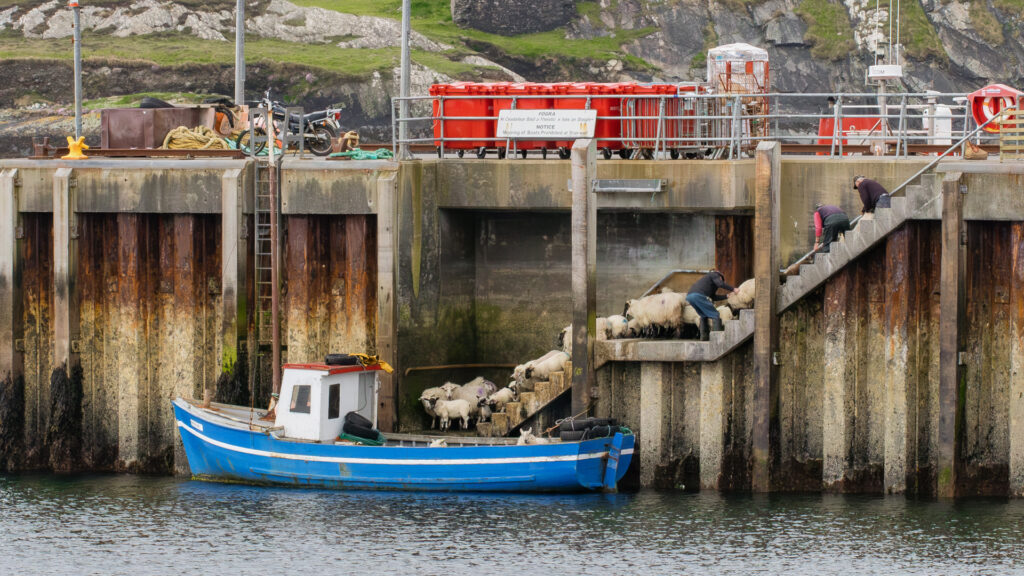
That desire to provide support in remote communities was one reason the council thought Inishbofin was an apt choice for the AI Skill-Up-A-Thon.
“AI is still very new to a lot of people, particularly people living in rural areas,” he said. “To me, this opportunity with AI is about looking into the future and seeing what the opportunities are, what advantages might be gained.”
At the Doonmore Hotel, Andrew Murray’s day was still overflowing with tasks, and by mid-afternoon he still hadn’t had breakfast.
Like many people on the island, he possesses many skills. He’s an accomplished performer of Irish traditional music, a sailor, and he spent more than 15 years as a teacher and school principal on the mainland before returning to Inishbofin. He’s also adept at managing his hotel’s presence online, via its website and social media platforms.
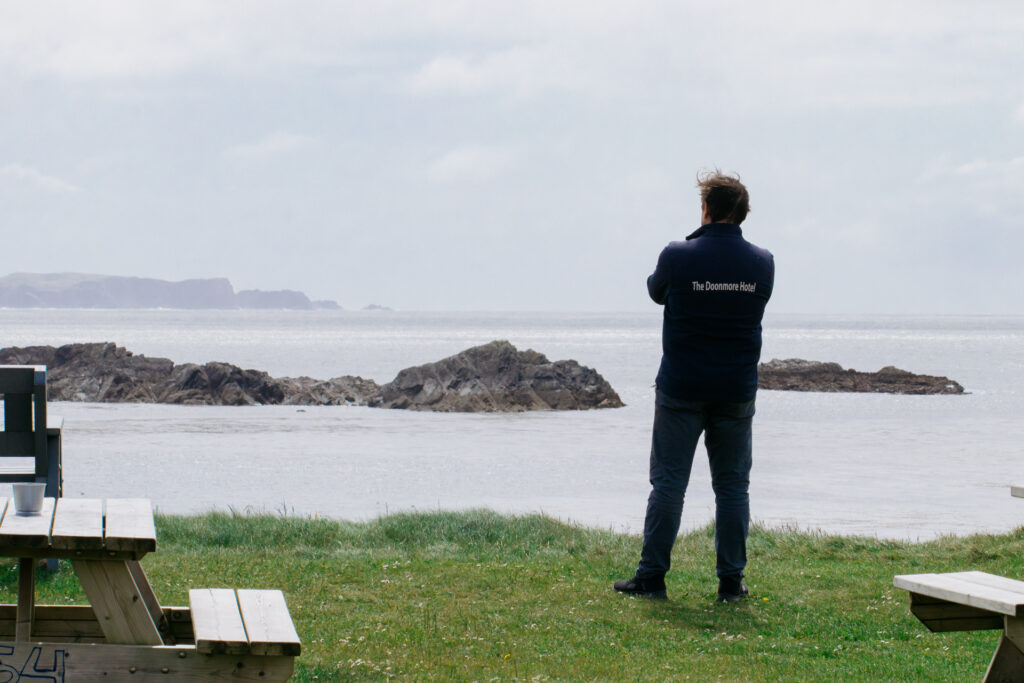
“I’ve had a lifelong interest in technology and right now AI is the top of the mountain in the technology world,” he said. “I was fascinated by the power of it and what it can do.”
In his current job, he handles “HR, the marketing, managing kitchens, purchasing, pricing – all of which in a bigger place would be separate jobs. Whereas in these kinds of places, we tend to do all those things, and that’s where the time factor comes in. We just don’t have enough time.”
“For me, AI is going to be about time saving for sure, and using the information we have and analyzing it properly,” he said.
Audrey Murray also wears many hats. In addition to being a felt artist, she is also a special-needs assistant for students at Inisbofin’s school. She moved to Inishbofin 36 years ago and later married an islander who happens to be a brother of Andrew Murray.
She said that AI is something that could add to the quality of life on the island, just as the Internet did when it arrived. Being connected made it easier to communicate with family on the mainland, attend meetings or learn online.
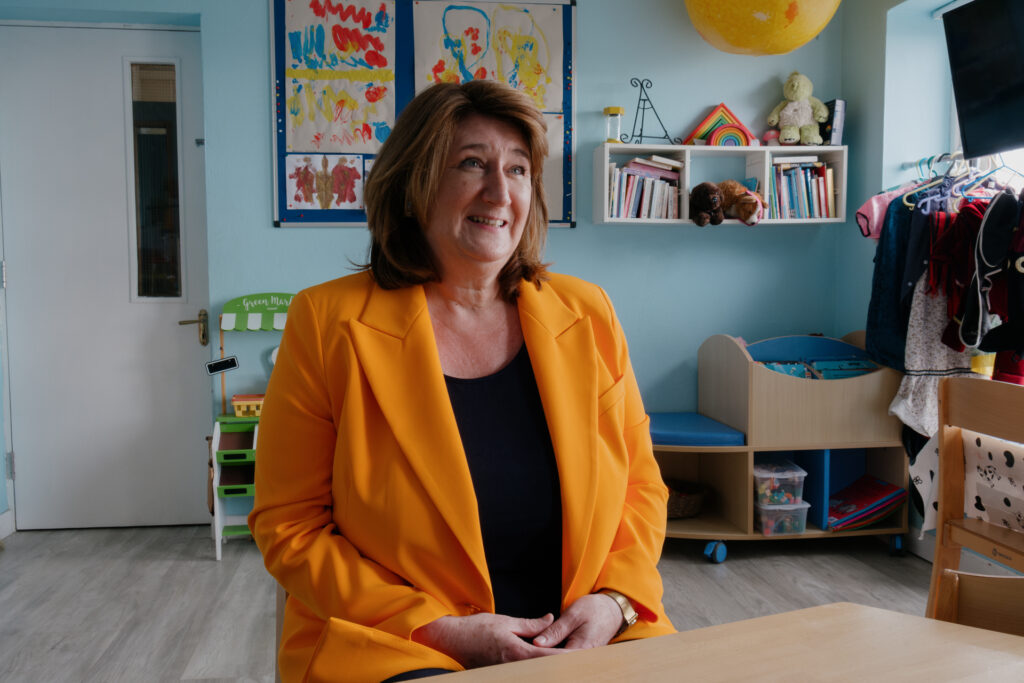
“That has changed our lives, you see, we don’t always have to travel to the mainland anymore,” she said. “If we have rough seas, that hampers us from going places at times. We have to plan our lives around the sea.”
She said the AI training opened her eyes to many possibilities. She thinks Copilot could help with writing grants for the island school, for projects with the other island artists, and for things she hasn’t even thought of yet.
“AI has to be another step, I suppose, bringing us closer to the world and bringing the world here,” she said. “Ask me again, in another month’s time!”